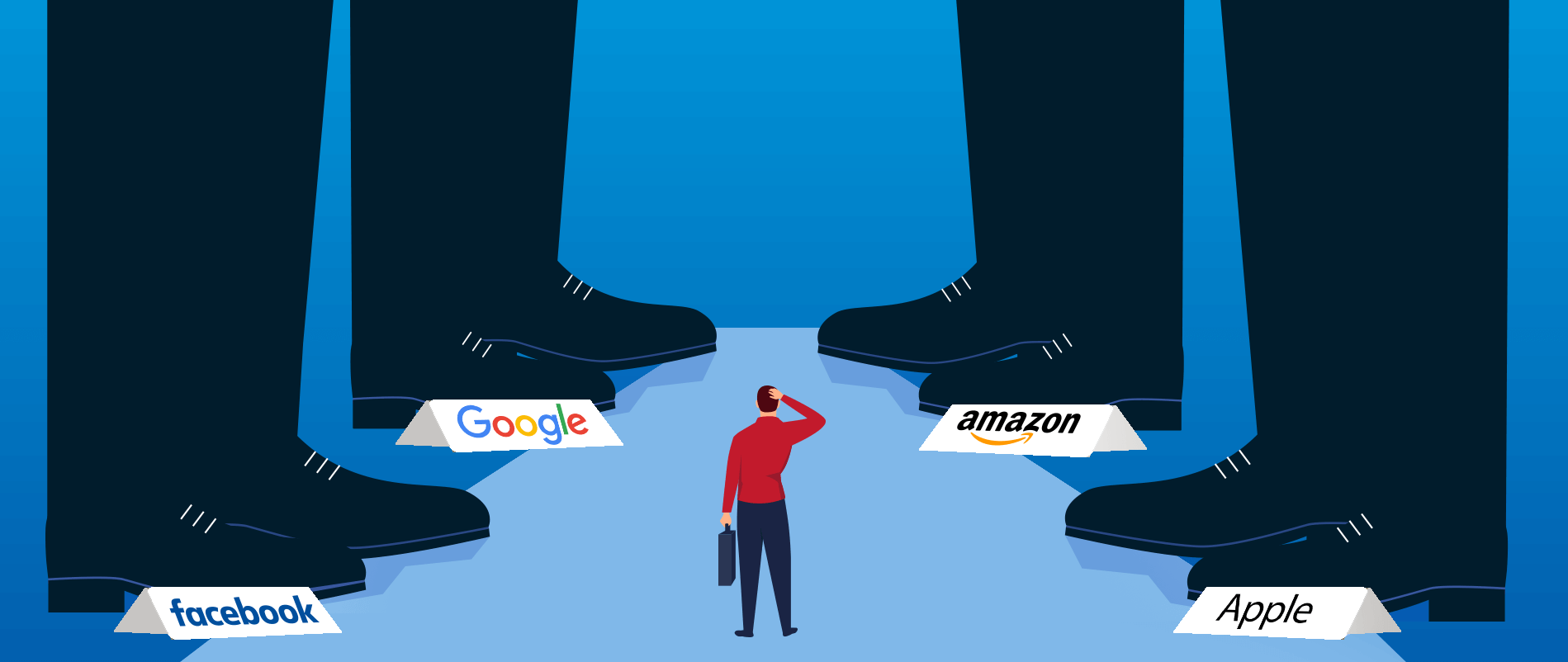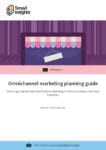Marketers should look to form more diverse, holistic strategies capable of operating on their own schedules rather than being subject to Google's short-term outages, bugs, and penalties
For SEO marketers, Google is an unpredictable ecosystem. One day, the sun is shining and you’re basking in its favour. The next, a hurricane hits and your carefully crafted content flies out the window and is nowhere to be found.
Rumours of indexing issues are at the heart of the latest troubles. Google has admitted a certain amount of delay in indexing and displaying new content, but the extent of the current problem is a mystery at best — just like a lot of Google’s behind-the-scenes activity.
Download our Business Resource – Omnichannel marketing planning guide
Our omnichannel planning guide will outline the differences between omni and multichannel marketing and then help you create a strategy and roadmap for achieving your own omnichannel marketing objectives, using examples from global brands.
Access the Omnichannel marketing planning guide
There have also been reports of marketers receiving link penalties for reasons they aren't aware of. Dan Petrovic of Dejan received a manual link penalty that drastically impacted his rankings and kept his site from showing up, even when people searched for the exact name. Add that to the list of the general confusion about the value of no-follow outbound links and you can see the turbulent nature of the current SEO climate and these unclear penalties.
With all of that said, concerns about Google’s temperamental nature have taken too prominent a place on marketers’ priority list. The energy that people in the industry are spending being upset and worried about links would be better focused elsewhere. Time forming a more diverse, holistic strategy capable of operating on its own schedule rather than being subject to Google's short-term outages, bugs, and penalties would be much better spent.

The problem of overwatching Google
When Google experiences issues, there isn't much that marketers can do to compensate for the loss of potential traffic. These issues impact everyone whose content is displayed for the period of time the bug persists. How do these impacts come about?
Most appear out of invisible shifts in Google's algorithm that are impossible to track. Because of that, trying to anticipate whether or not you might be affected ends up being a futile effort.
Of course, you should always keep an eye on issues and maintain a critical understanding of Google’s limitations. Tech giants should be kept in check just like any other company when their products fail in a way that directly impacts publishers that rely on them for such a big portion of their livelihood.
Many people are taking up this line of thinking on Google's behaviour, some in major ways. A group of state attorneys in the US, for example, is leading an investigation into the company’s "potential monopolistic behaviour,” focusing on its control over advertising and search (about 31% of global digital ad spending is controlled by Google) and the way it favours its own subsidiaries.
One journalist who spent a lot of time criticizing Google during his career actually joined the company recently to become its “search liaison,” using his mix of now-insider knowledge and rigorous critical energy to call attention to Google’s errors and explain them to the public.
But while this important work goes on, don't wait for Google to blow your house down. Instead, start reinforcing your efforts by developing a promotion strategy combining other channels, such as social, email, PR, and programmatic native ads, to find your own blend of organic and paid search success that speaks to your particular audience.

How to build a marketing and content strategy beyond Google
To develop an omnichannel strategy that gives you the freedom to overcome the whims of the Google search engine and stay focused on your audience, follow these three steps:
Give yourself a budget for native advertising
One way to get away from letting Google completely control you is to stay focused on your own content. While Google's News section can be a great way to capture in-the-moment timeliness, you can build your own relevance by positioning content in the right place at the right time for your audience. Native ads attract target viewers who are already consuming content, giving you automatic relevance.
Bolster your native ad strategy by finding publications and channels that are relevant to what you’re saying and whom you're saying it to, like social networks where your followers hang out or industry magazines. This kind of organic placement can earn you 53% more attention from your target audience than simple banner ads and can give you a chance to promote a proprietary contextual link or preview in another relevant story.

Join a social media conversation
It's one thing to publish your coverage, opinion, or news article and wait for your rankings to respond accordingly, but engaging with the online community is a more active way to get views and more attention for your content.
Reaching out to influencers or industry experts during the creation phase can help spark your engagement on social media, too. It’s a valuable addition to your content strategy because if you play it right and it opens up new audiences to your ideas in a fresh way, it will encourage shares and comments.
The key is to find and nurture relationships in a way that builds trust, not just with influencers, but also with your audience. Make a list of people who could speak to and through your brand — people who your loyal followers will trust. Begin with a personal message to your potential influencer that forges a bond of shared values, and get going from there.
Incorporate your top stories in an email campaign
Making mention of your top recent or relevant content in an email newsletter you regularly send out to subscribers is a great way to keep your content strategy current and reward your audience with valuable material rather than send them offers or sales pitches.
Email is often overlooked as part of a successful content strategy, but it can be an anchoring force for your relationship with customers — not only as a news vehicle in its own right but also as a supportive structure for boosting and echoing your content in other channels. In fact, 74% of marketers cite email as their most impactful distribution channel.
Final thoughts
Google may mess up your marketing efforts every so often, but don’t let it derail things entirely. Create an integrated content strategy that takes the best of the many channels and methods at your disposal and puts them together in a way that speaks to your unique audience.
Joe Arduini is the director of SEO at
Internet Marketing Inc. (now REQ). He has over nine years of experience in online marketing, as well as experience in songwriting and musical performance.











